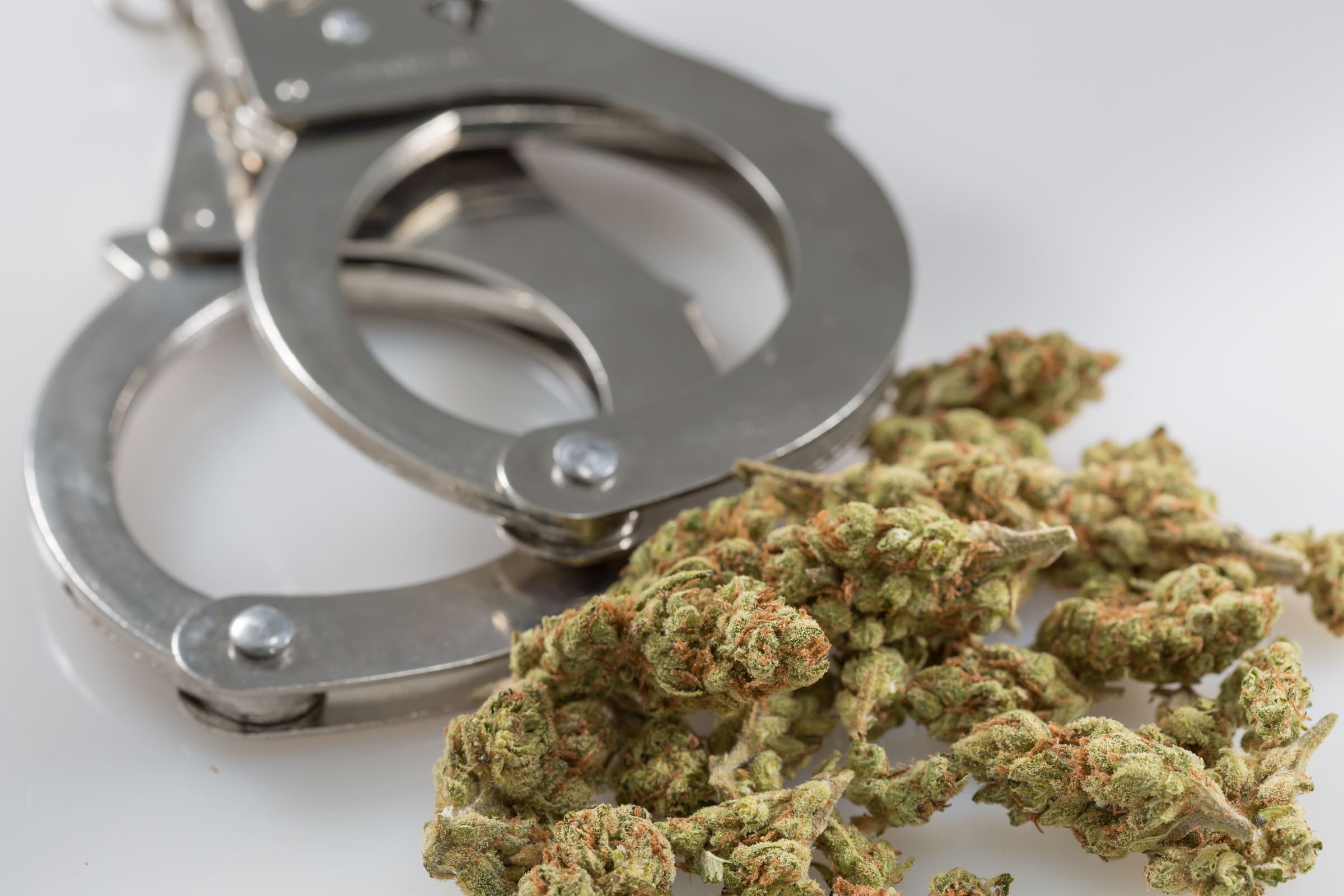Politics
How Marijuana Criminalization Undermines The Coronavirus Response (Op-Ed)

“There will be many policy lessons that emerge from the COVID-19 pandemic. One should be that we can achieve better health, safety, and economic outcomes if we replace cannabis prohibition with a thoughtfully regulated system of sales to adults and take other steps to reduce the number of low-risk offenders who become entrapped in our criminal justice system.”
By Steve Hawkins, Marijuana Policy Project executive director
The coronavirus crisis has abruptly forced all Americans to reexamine our priorities. Entire sectors of the economy have been shuttered as we reduce contact between people to flatten the curve and reduce the death toll. Elected officials and regulators, in particular, must reevaluate a wide range of government policies to ensure a swift, coordinated and appropriate response to the pandemic.
One public policy that offers no benefit whatsoever during this time of crisis is our nation’s failed prohibition of cannabis. As governments work to minimize the negative impacts of COVID-19, it’s clear that punitive cannabis laws and unnecessarily strict regulations serve as far more of a hindrance than a help.
Some police departments and prosecutors have already determined that prosecuting low-level offenses such as cannabis possession is counterproductive and puts police, prosecutors and the public at risk. For example, Baltimore State’s Attorney Marilyn Mosby ordered her staff to dismiss pending criminal charges against anyone arrested for drug possession and several other nonviolent offenses.
Meanwhile, news reports from other jurisdictions indicate that arrests for cannabis possession have continued, increasing the risk of exposure to coronavirus both for cannabis consumers and enforcement personnel and undermining health experts’ advice regarding the need for social distancing.
It would be a disaster if the coronavirus becomes prevalent in America’s overcrowded jails and prisons. Criminal justice reform organizations have called for the release of low-risk inmates such as those convicted of cannabis offenses. This step should be taken as swiftly as possible to protect all staff and inmates at correctional facilities.
In the 11 states where cannabis is already legal for adults, interaction among law enforcement and consumers has already dropped considerably, so fewer steps are likely to be needed. The other 39 states should immediately suspend enforcement and prosecution of cannabis laws for the duration of the national emergency. Not only does it protect public health, it also avoids wasting limited law enforcement and court resources during a crisis.
We must also consider the challenge faced by roughly three million medical cannabis patients across the U.S. Many have vulnerable immune systems due to age or a serious medical condition, putting them in the high-risk category with regard to COVID-19.
Although medical cannabis is legal in 33 states, many states have restrictive policies that frustrate patients who are seeking to avoid exposure to the coronavirus. For example, some states forbid deliveries of medical cannabis and others maintain criminal penalties against home cultivation.
Fortunately, several states have already adopted emergency measures to ensure that patients are protected. New York, Iowa and other states have designated medical cannabis dispensaries as essential services to ensure their continued operation during the crisis. Louisiana took swift action to allow deliveries, and Michigan is allowing curbside pickup at dispensaries so patients do not have to enter the building. A few states have begun allowing patients to renew their certifications via telemedicine rather than continuing to require a visit to a doctor. These are all worthy reforms that should be enacted in all states that have legalized medical cannabis.
Finally, as we dare to look beyond the crisis, it seems clear that states with legal cannabis markets will have a significant advantage over other states as the economy recovers from this pandemic. More than 200,000 Americans already work in the state-legal cannabis industry, demonstrating that cannabis can be an important job creator and driver of economic development in addition to being sensible public policy and a source of substantial tax revenue.
As we all take time to re-evaluate our nation’s public policy priorities, cannabis and criminal justice should be important parts of the conversation. Policymakers, including state legislators, governors and members of Congress, should take advantage of this opportunity to acknowledge that cannabis prohibition does not protect public health and safety, and they should support enacting reasonable policy alternatives on both a temporary and permanent basis.
There will be many policy lessons that emerge from the COVID-19 pandemic. One should be that we can achieve better health, safety, and economic outcomes if we replace cannabis prohibition with a thoughtfully regulated system of sales to adults and take other steps to reduce the number of low-risk offenders who become entrapped in our criminal justice system.
DC Allows Medical Marijuana Delivery Under Coronavirus Emergency Order
















